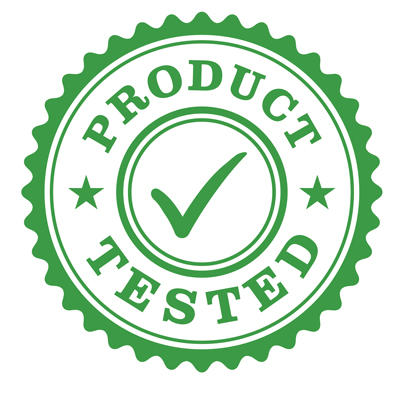Product certifications: How we know propane products are safe
As a propane professional, safety is always top of mind during day-to-day activities.
It could be the safety of your family, customers, co-workers, the work environment around you or your own personal safety. However, ensuring the safety of the products you use, both at home and for your customers, may not be something that you think about every day.
That’s probably because you rely on the manufacturer of the product or some other organization to ensure that these products are safe. I doubt you have thought about how that is done.
It starts with the Occupational Safety and Health Administration (OSHA), which in 1989 established the Nationally Recognized Testing Laboratory (NRTL) program to ensure certain products are tested and certified for safe use in the workplace.
NRTLs are private-sector organizations that OSHA accredits to perform testing and certification using consensus-based standards. This includes testing for conformance with appropriate standards, conducting continued inspections of actual production, being completely independent from any manufacturer or vendor of certified products, and being able to produce its findings, including complaints and disputes.
There are several NRTLs in the U.S., with probably the most recognizable being Underwriters Laboratories (UL). UL ensures products adhere to applicable standards and conducts rigorous examination, testing, follow-up surveillance of the manufacturing process and procedures to ensure compliance with the industry standards and the NRTL program.

Not all products can be or have to be certified, but rest assured that if a product does have a certification, it meets or exceeds the standards for conformity and safety. (Image: Svetlana Orusova/iStock / Getty Images Plus/Getty Images)
How a certification works
After a product has been certified under the NRTL program, the NRTL then authorizes the manufacturer to apply a registered certification mark to the product. This mark signifies that the product has been tested and certified, and complies with the appropriate product safety test standards.
You can see this mark on the product itself. Not all products can be or have to be certified, but rest assured that if a product does have a certification, it meets or exceeds the standards for conformity and safety.
Why is it worth checking?
If you are looking at two similar products and one has a certification and the other does not, you should ask yourself: “Is it worth the risk to use a product that has not gone through the rigorous testing and certification to ensure that it conforms to the standards, performs as expected and meets the applicable safety measures?”
In some cases, there are regulations or safety standard organizations that require that the products used must have an NRTL certification.
For example, the National Fire Protection Association or the authority having jurisdiction may have codes or requirements for the product to be certified by a NRTL. This certification from an NRTL allows those manufacturers to innovate safety standards and align with industry-wide practices, and gives consumers confidence in the high level of safety and quality of the products.
Sometimes things affect our daily lives that we take for granted, like the safety standards and processes that ensure products we use are safe. Ensuring the safety and accountability of the products we use every day is valuable, and there is an additional cost for a certified product due to the extensive processes that must be followed.
But just because a product is not certified by an NRTL doesn’t mean it is bad. It does mean its compliance to performance and safety standards has not been tested and verified independently from the manufacturer.
By properly selecting the products you use and sell, you are ensuring the safety of the systems that help you provide clean and efficient propane energy to your customers.
Randy Warner is the product safety manager for Cavagna North America. He can be reached at randywarner@us.cavagnagroup.com.
NOTE: The opinions and viewpoints expressed herein are solely the author’s and should in no way be interpreted as those of LP Gas magazine or any of its staff members.
















